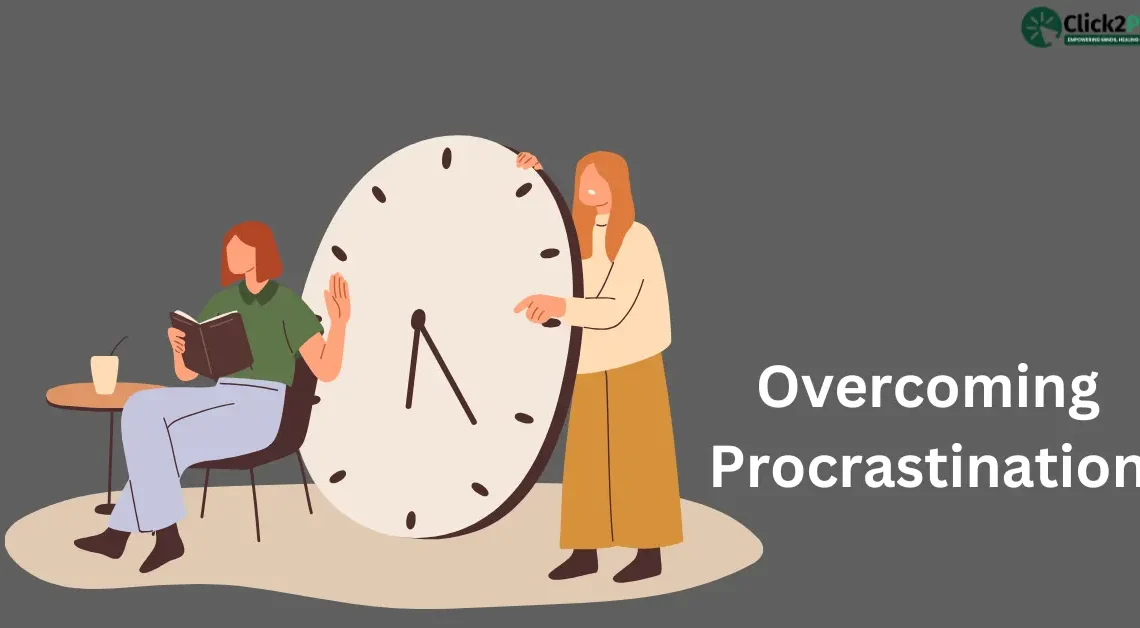
How to Overcome Procrastination: Practical Techniques That Work
Procrastination is a common challenge that affects productivity and mental well-being, but it’s not insurmountable.
By understanding why we procrastinate and adopting effective strategies, you can break the cycle and boost your efficiency.
Trending Now!!:
This article explores practical techniques to overcome procrastination, helping you achieve your goals with confidence and clarity.
Understanding Procrastination
Procrastination often stems from fear of failure, perfectionism, or feeling overwhelmed by tasks. It’s the act of delaying important tasks, even when you know it could lead to stress or missed deadlines.
To stop procrastinating, you need actionable strategies that address both the mindset and habits fueling this behavior.
1. Break Tasks into Manageable Steps
One of the most effective ways to beat procrastination is to divide large tasks into smaller, actionable steps. When a project feels overwhelming, it’s easy to avoid starting.
Instead, create a task list with specific, bite-sized goals. For example, if you’re writing a report, start by outlining the structure, then drafting one section at a time.
This approach makes starting less daunting and builds momentum.
- Pro Tip: Use a productivity tool like Trello or Notion to organize tasks and track progress. This helps you stay focused and motivated.
2. Set Clear Goals and Deadlines
Setting clear, realistic goals is crucial for overcoming procrastination. Vague objectives like “work on the project” can lead to delays. Instead, define specific outcomes, such as “complete the introduction by 3 PM today.”
Pair each goal with a deadline to create urgency. Studies show that time-bound goals increase accountability and reduce the urge to procrastinate.
- Pro Tip: Use the SMART goal framework (Specific, Measurable, Achievable, Relevant, Time-bound) to structure your objectives for maximum clarity.
3. Adopt the Pomodoro Technique
The Pomodoro Technique is a time management method that combats procrastination by breaking work into focused intervals, typically 25 minutes, followed by a 5-minute break.
This approach minimizes burnout and keeps your mind fresh. After four intervals, take a longer break. This technique is especially effective for tasks requiring sustained focus, like studying or coding.
- Pro Tip: Use apps like Focus@Will or a simple timer to implement this technique and stay disciplined.
4. Eliminate Distractions
Distractions are a major driver of procrastination. Social media, notifications, or a cluttered workspace can pull you away from your priorities.
To stay productive, create a distraction-free environment. Turn off notifications, use website blockers like Freedom or Cold Turkey, and set up a dedicated workspace.
By minimizing temptations, you can maintain focus and get things done faster.
- Pro Tip: Schedule specific times to check emails or social media to avoid constant interruptions.
5. Practice Self-Compassion
Perfectionism often fuels procrastination, as the fear of not doing a task perfectly can prevent you from starting. Combat this by practicing self-compassion.
Accept that mistakes are part of growth and focus on progress over perfection. Positive self-talk, like “I’m doing my best, and that’s enough,” can reduce anxiety and motivate you to take action.
- Pro Tip: Journaling your thoughts can help you process negative emotions and shift your mindset toward productivity.
6. Use Positive Reinforcement
Rewarding yourself for completing tasks can make work feel more enjoyable and reduce procrastination. For instance, treat yourself to a coffee break or an episode of your favorite show after finishing a task.
Positive reinforcement creates a mental association between productivity and pleasure, making you more likely to stay on track.
- Pro Tip: Keep rewards small and immediate to maintain motivation without derailing your progress.
7. Address the Root Cause
To truly stop procrastinating, reflect on why you’re avoiding tasks. Are you overwhelmed, bored, or afraid of failure? Identifying the root cause allows you to tailor your approach.
For example, if you’re bored, find ways to make the task more engaging, like listening to instrumental music or gamifying your work. If fear is the issue, break the task into smaller steps to build confidence.
- Pro Tip: Keep a procrastination log to track when and why you delay tasks. This can reveal patterns and help you address them.
8. Leverage Accountability Partners
Sharing your goals with a friend, colleague, or mentor can significantly boost your commitment.
An accountability partner provides encouragement and checks in on your progress, making it harder to procrastinate. You can also join a productivity group or online community to share tips and stay motivated.
- Pro Tip: Schedule regular check-ins with your accountability partner to review goals and celebrate wins.
9. Start with the Two-Minute Rule
The two-minute rule is a simple yet powerful technique to overcome procrastination. If a task takes less than two minutes, do it immediately. For larger tasks, commit to working on them for just two minutes.
Often, starting is the hardest part, and this small action can kickstart your momentum, leading you to continue.
- Pro Tip: Apply this rule to mundane tasks like responding to emails or organizing your desk to build a habit of taking action.
10. Prioritize Tasks with the Eisenhower Matrix
The Eisenhower Matrix helps you prioritize tasks based on urgency and importance. Divide tasks into four categories: urgent and important, important but not urgent, urgent but not important, and neither.
Focus on what’s important to avoid wasting time on low-value activities. This method reduces procrastination by keeping you aligned with your priorities.
- Pro Tip: Review your matrix daily to adjust priorities as new tasks arise.
Final Thoughts
Overcoming procrastination is about building habits that support productivity and mental clarity. By breaking tasks into manageable steps, setting clear goals, eliminating distractions, and addressing the root causes, you can stop procrastinating and achieve your goals.
Start small, stay consistent, and celebrate your progress. With these practical techniques, you’ll unlock your potential and tackle tasks with confidence.
By implementing these strategies, you’ll not only boost productivity but also reduce stress and enjoy a greater sense of accomplishment. Take the first step today—your future self will thank you!


